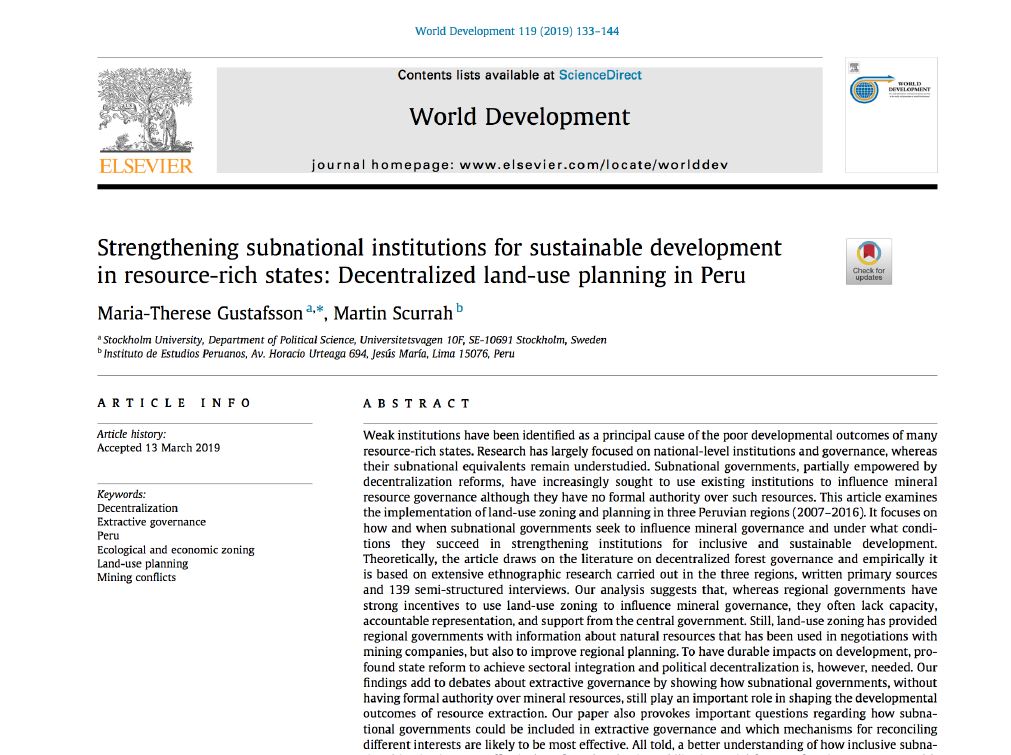︎

Maria-Therese Gustafsson
Stockholm University
Maria-Therese Gustafsson is Assistant Senior Lecturer at the Department of Political Science, Stockholm University. Prominent themes in her research are the impacts of global policies and private governance initiatives, on local communities in the Andean region and in Brazil. Empirically, she has focused on the extractive and climate governance, and more recently of the public and private governance initiatives in the supply chains of soy and beef from Brazil to selected European countries. She currently co-leads two research projects on new supply regulations and their implementation in the supply chains of beef and soy between Europe and Brazil. She has published articles in World Development, Third World Quarterly, WIRE’s Climate Change, Environmental Science and Policy, Global Environmental Politics, and the monography Private Politics and Peasant Mobilization: Mining in Peru (Palgrave).
MORE ABOUT MARIA-THERESE GUSTAFSSON >2022
Maria-Therese Gustafsson, Jorge E. Rodriguez-Morales, Lisa M. Dellmuth
Private adaptation to climate risks: Evidence from the world’s largest mining companies
Private companies have in recent years started to disclose information about their exposure and responses to climate risks. However, we still know little about how and why private actors engage in climate change adaptation, and to what extent they do so in ways that improve societal resilience. This...
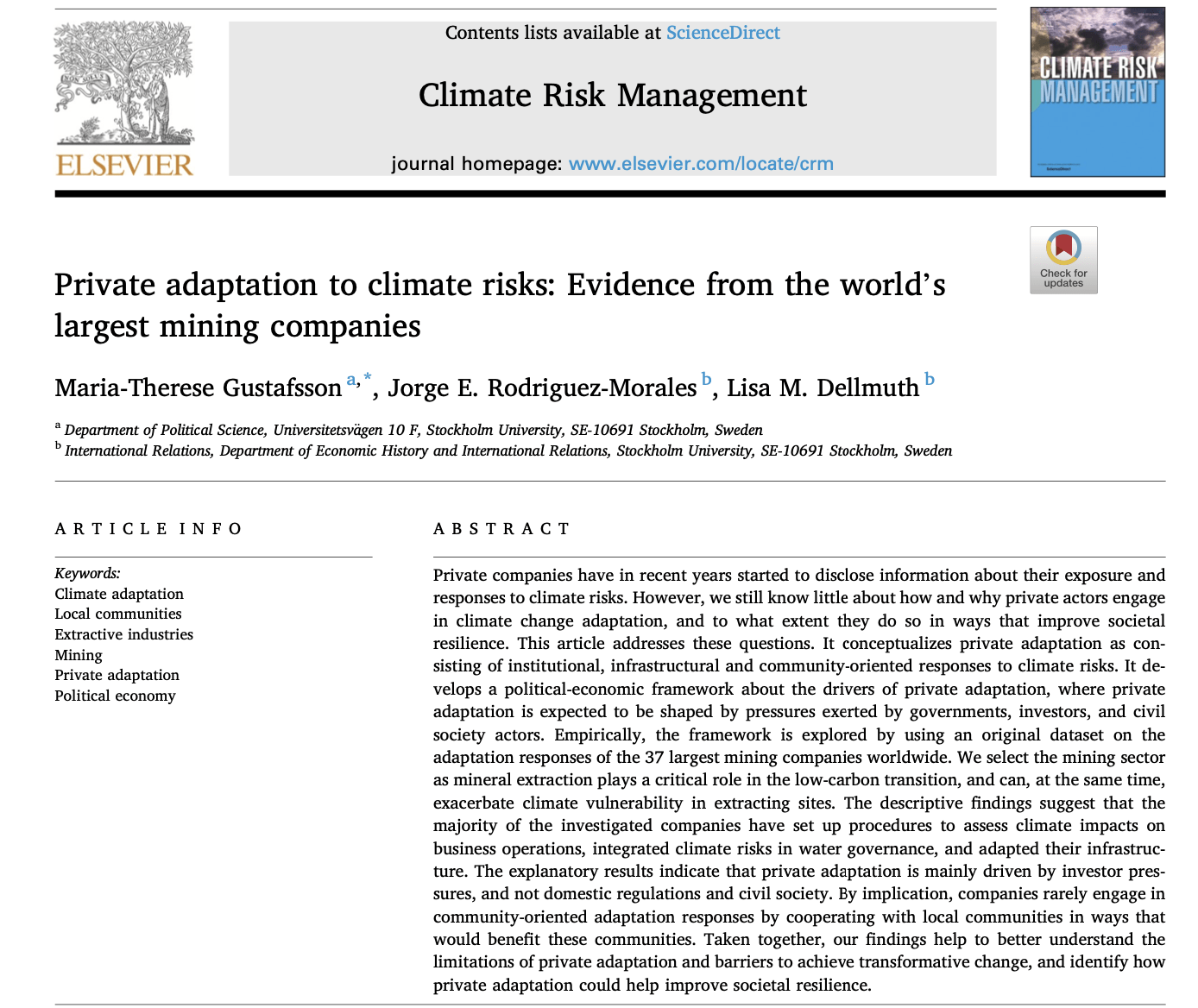
2023
Almut Schilling-Vacaflor & Maria-Therese Gustafsson
Towards more sustainable global supply chains? Company compliance with new human rights and environmental due diligence laws
Binding regulations have, recently, emerged in the Global North with the aim of holding companies accountable for environmental and/or human rights impacts throughout their supply chains. This article develops and applies an analytical framework to analyze corporate accountability dynamics in global...
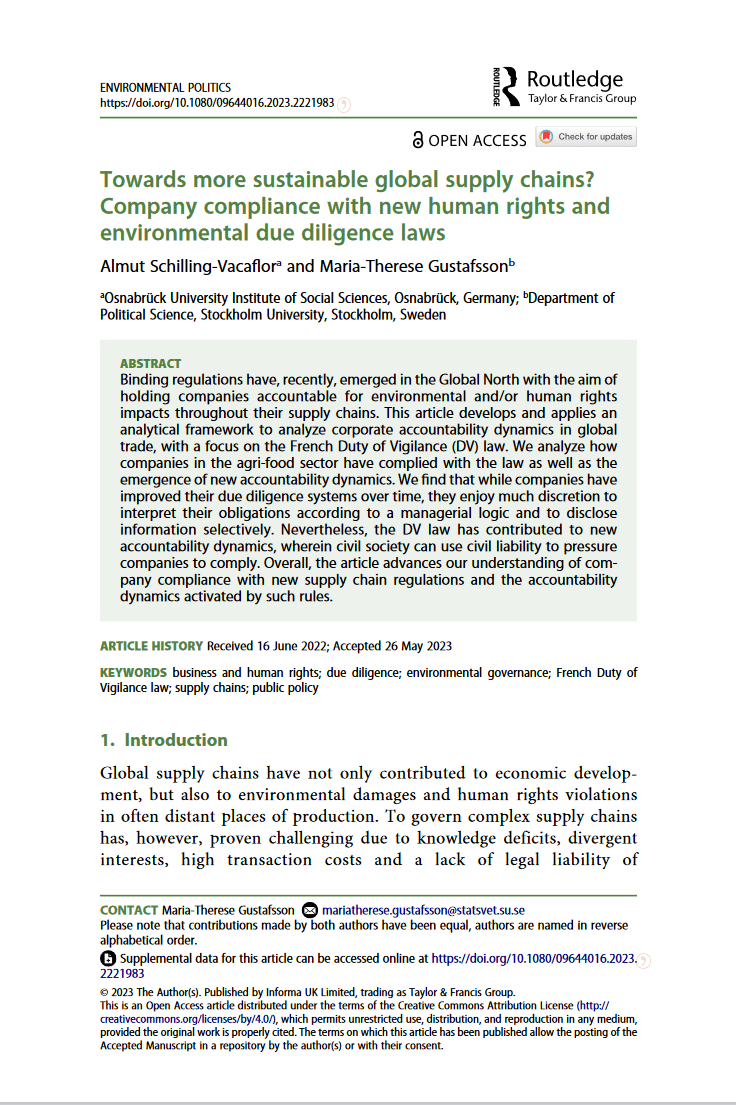
2020
Maria-Therese Gustafsson; Roger Merino; Martin Scurrah
Domestication of International Norms for Sustainable Resource Governance: Elite Capture in Peru
In recent years, international actors have promoted international norms related to sustainable and inclusive resource governance. However, we know little about how such attempts are contested and adapted in domestic reform processes. Drawing on insights from norm diffusion and institutionalist theor...
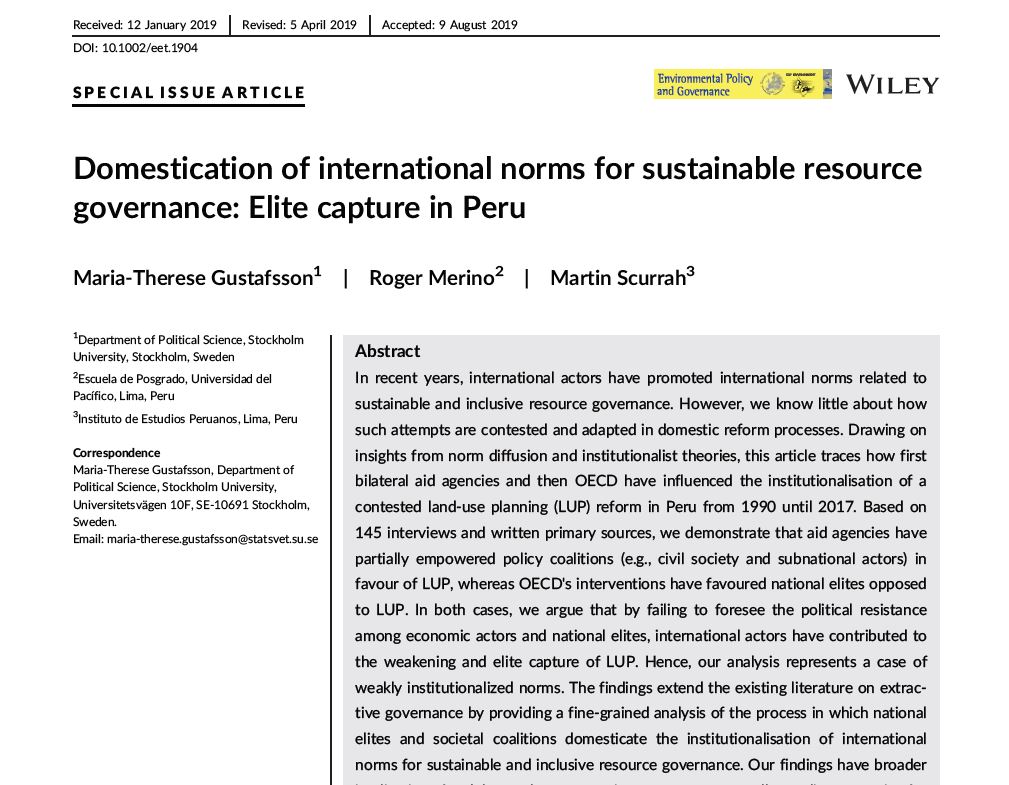
2019
Maria-Therese Gustafsson; Martin Scurrah
Unpacking the extractivist state: The role of weak state agencies in promoting institutional change in Peru
When a resource boom has begun it is often challenging to develop institutions for governing natural resources in an inclusive and sustainable manner. Whereas existing studies on resource-rich states have focused on political elites or social mobilization for explaining attempts to strengthen such i...
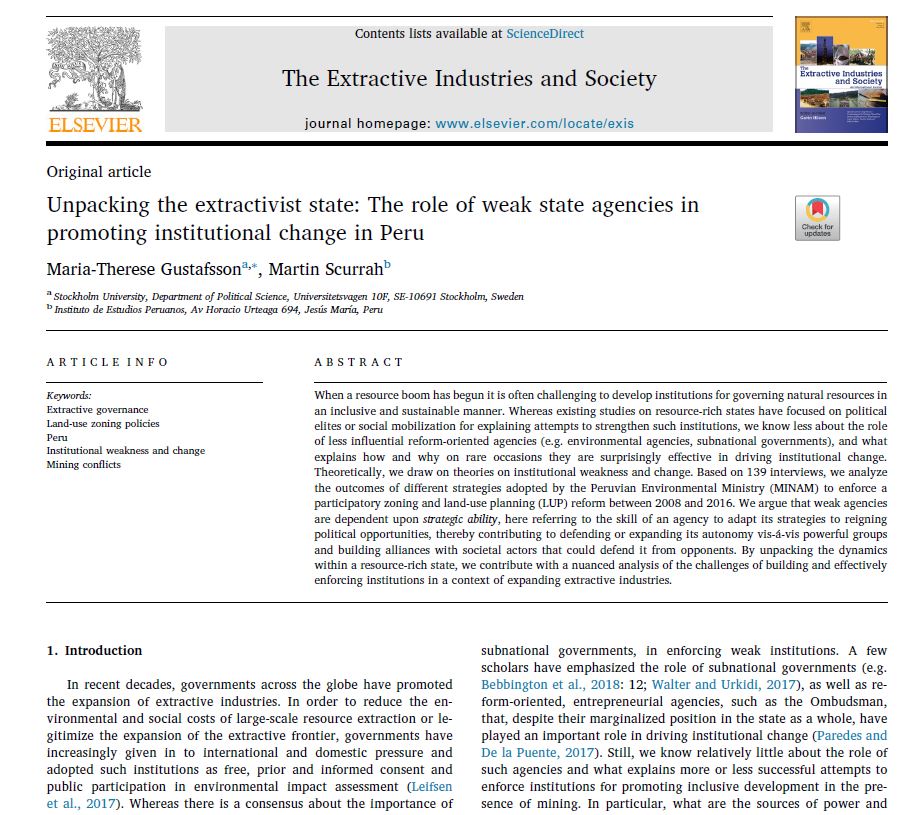
2019
Maria-Therese Gustafsson; Martin Scurrah
Strengthening subnational institutions for sustainable development in resource-rich states: Decentralized land-use planning in Peru
Weak institutions have been identified as a principal cause of the poor developmental outcomes of many resource-rich states. Research has largely focused on national-level institutions and governance, whereas their subnational equivalents remain understudied. Subnational governments, partially empow...
